SUMMARY
This is AI generated summarization, which may have errors. For context, always refer to the full article.
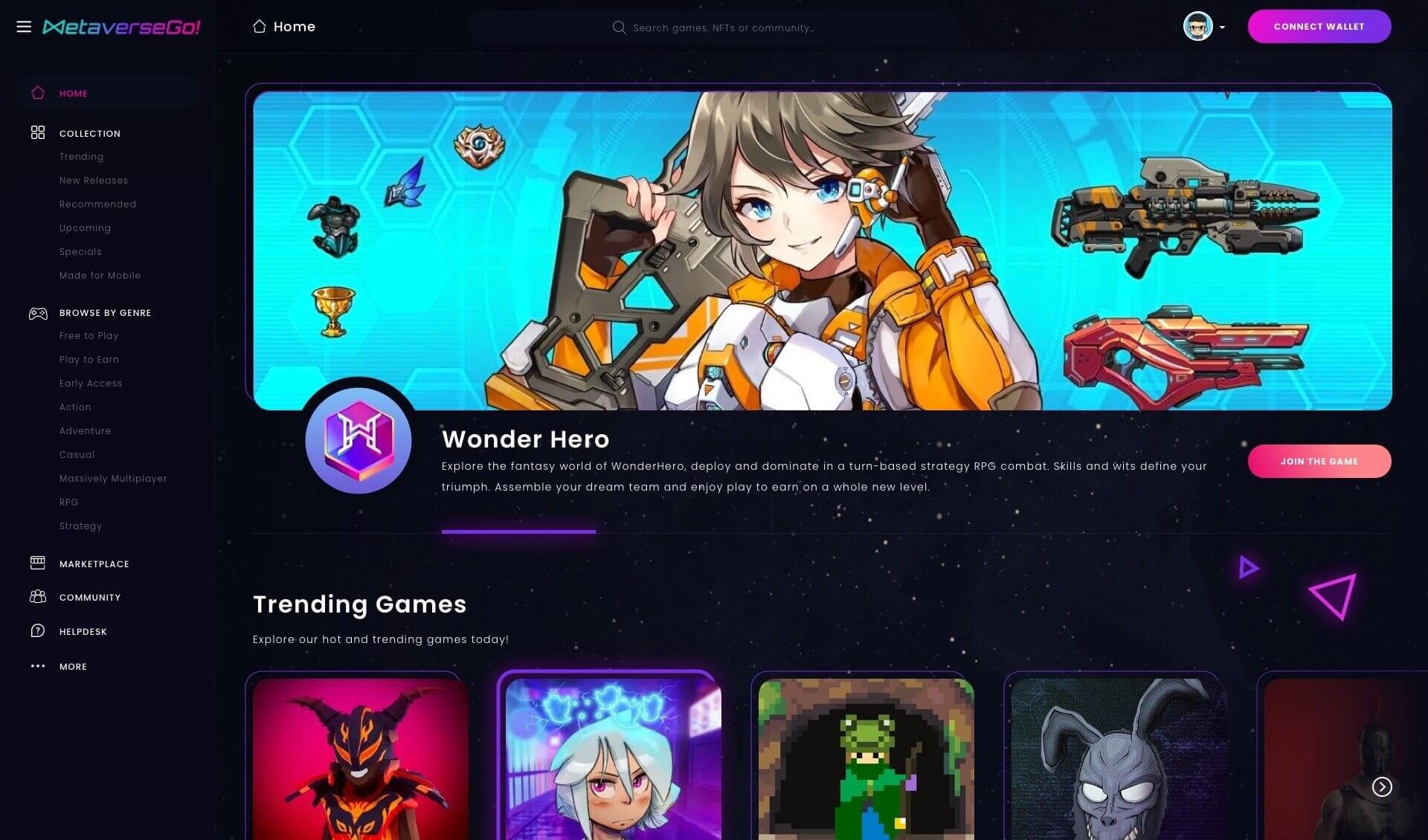
AT A GLANCE
- MetaverseGo is a three-month-old company in the NFT and “play-to-earn” space
- It was founded by Ash Mandhyan, a Filipino tech executive with stints at Lazada, Facebook, and TikTok parent ByteDance.
- MetaverseGo will be launching an app that the company says will make it easier to access NFT-based games. Often, these games need users to create a crypto wallet, among other steps that require some time and effort in understanding. The app will perform some of these steps for the user, and will only require a mobile number.
- Within the same app, it will also show players games or projects that have been rated as legitimate by the community to help address the issue of players running into scam projects.
- It will also connect players to gaming guilds who can provide the “scholarship” needed to start playing NFT games. Often, NFT games require a player to purchase an in-game asset in the form of an NFT that comes at a cost. Guilds providing scholarships can shoulder that cost in a profit-sharing scheme.
- The open beta testing period for the app begins in July 2022.
Anyone who’s ever played – or attempted to play – NFT-based play-to-earn games like the popular Axie Infinity knows that there can be a pretty steep learning curve behind them. And we’re not referring to the gameplay mechanics here but rather the need to understand the technology powering these games.
In contrast to the popular free-to-play mobile games, NFT-based play-to-earn games generally require an initial investment that’s purchased through cryptocurrency. If you’ve never dabbled in crypto before, signing-up for these games can feel like an involved process. All these factors can be barriers to entry for casual players who simply want to play and perhaps make a few bucks on the side.
This is the very challenge that MetaverseGo wants to solve when it launches its app later this August. CEO Ash Mandhyan emphasized in a media session that he wants the platform to serve as the bridge between the emerging technologies enabling these games and people’s interest to engage with them.
By simplifying the processes and limiting the risks involved, Mandhyan and chief business development officer Jake San Diego believe that a greater number of people will want to jump in and play. According to them, interest isn’t the problem in the country, with millions already playing games across various devices. What supposedly slows the local adoption rate down is accessibility. And they hope to change that and grow the play-to-earn space through their app.
How does it work?
MetaverseGo is accessible because it takes advantage of a tool that many Filipinos already have, and one that’s capable of both personal identification and fund utilization: mobile numbers. This is what you’ll use to register for the app, which takes care of all the heavy lifting you’ll need to start playing, including creating and assigning a crypto wallet to your account.
Mandhyan notes the platform is not changing or removing steps from the normal process involved with playing these games. It’s just that, from your perspective as the user, they’re all happening behind the scenes to ease your unfamiliarity. When the time comes that you’re comfortable doing all these on your own, the platform will enable you to shift.
Now that you’re registered, you’ll be brought to a Netflix-like dashboard of games you can play. These games are continuously curated based on ratings provided by the community, their capacities to earn, and their overall fun factor.
The rating system, as Mandhyan points out, helps you discover games that have been “validated” by other players and protects you from “rug pull” scams – a problem which likely won’t be present until later down the line, with the app only featuring games from partner developers at launch.
“Rug pull” scams lure players to invest in what appears to be a new game or crypto project. Once enough money or crypto has been collected, the people behind the scam suddenly exit and disappear, taking players’ money with them.
Once you’ve selected a game, you’ll then have to apply for a “scholarship” from a guild, which are groups that allow new players to try “play-to-earn games” in exchange for a percentage of the earnings. Among the most popular is Yield Guild Games, which provided thousands of these scholarships to Axie Infinity players. The scholarship program lets you rent in-game assets necessary to start playing, and come at a cost. These assets come in the form of non-fungible tokens (NFTs) that are also stored in your crypto wallet.
For those who haven’t been involved in Axie, Mandhyan describes a “scholarship” as a job application of sorts, which involves filling up a digital form with your information, experience level with a game, and your time commitments to playing. Guild managers will then assess your application and notify you whether you’ve been accepted or not. If it’s the former, then you can immediately start playing. However, if it’s the latter, the platform will pass your application to other guilds until you find one that takes you in.
From there, it’s a matter of simply playing, engaging with your guild, and making sure you fulfill your committed gameplay hours. Your performance will be ranked by guild managers to help them allocate assets in such a way that maximizes their earnings output.
Eventually, you’ll, of course, want to cash out your earnings, and MetaverseGo has also simplified that process. All in-game earnings, regardless of game or token, are immediately converted to the stablecoin USDC, the cryptocurrency pegged to the US dollar.
Mandhyan explained that this reduces the risks of players holding onto volatile currencies for too long as they acquaint themselves with how the market works. In case you want to convert your earnings back to a specific currency, the platform will also allow you to do so.
Mandhyan further noted that the platform consolidates and stabilizes your earnings so that, as a player, you only have to worry about your play hours. You no longer have to compute transfer gas fees, for example, of your crypto transactions. The platform takes all of these into account and shows you your final payout in peso. When you’re ready to cash out, you can just connect your MetaverseGo account to a partner bank or e-wallet and transfer your funds there.
How does the platform sustain itself?
MetaverseGo’s business model, according to San Diego, works on a profit-sharing system with guilds and players. As previously mentioned, guilds take a cut from players’ earnings and MetaverseGo receives a percentage from that as well. While San Diego didn’t go into specifics, he assured players that the split is fair and the lion’s share of the earnings still goes to the players.
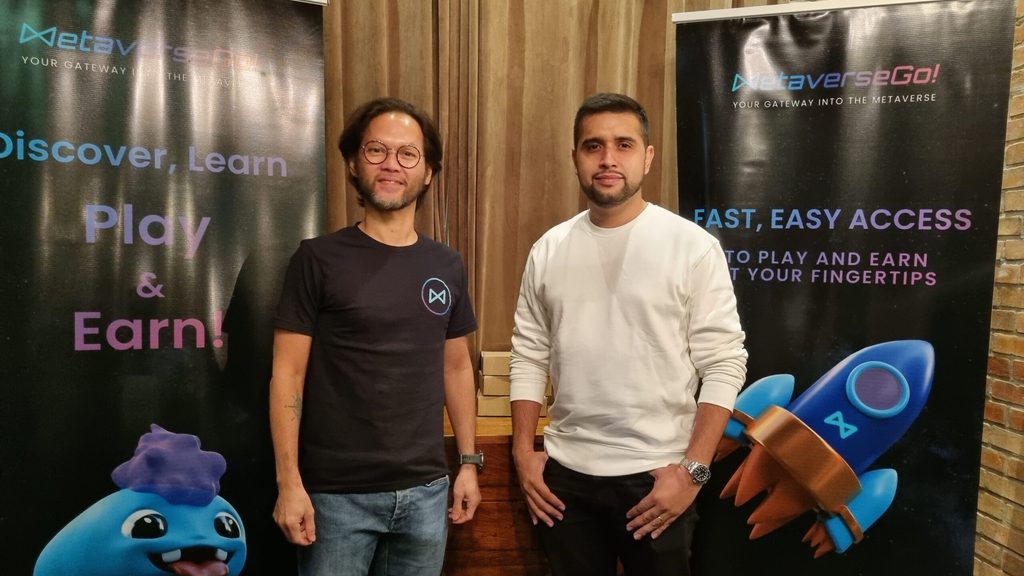
MetaverseGo also plans to launch its own marketplace down the line, where all kinds of assets can be traded. The platform will also take a cut from these transactions.
Mandhyan, who previously worked for companies like Facebook and TikTok parent ByteDance, said he hopes that through MetaverseGo, more people can learn about Web 3.0, the so-called next iteration of the internet, amid ongoing discussions about transparency and trust regarding online data. The key characteristic that distinguishes this new internet versus the existing one today, Web 2.0, is the decentralization of control.
Take for example social media content: what you upload online supposedly isn’t yours. Mandhyan explains that you’re essentially at the platform’s mercy when it comes to content connected to your profile. The platform can, for instance, one day change its policies and you won’t have much say about your content. You’ll just have to go along with them if you wish to stay on the platform.
This is why, from Mandhyan’s perspective, the concept of the metaverse – at its most basic definition, a merging of elements between the physical and virtual worlds, and is often connected to the decentralization of the internet – is so alluring. Control shifts back to the users themselves, with the “middle men” taken out of the picture. And part of that promise is already present today thanks to blockchain technology, which is being used for different applications, including gaming.
To add context, Web 3.0 at this point remains an unproven concept, and has its fair share of tough critics such as Twitter founder Jack Dorsey, and Tesla CEO Elon Musk. These two are among those who have questioned how decentralized Web 3.0 truly can be when top investors of proposed Web 3.0 companies are huge firms out of Silicon Valley as well.
Shifting in-game economies
Mandhyan points out how there’s currently a shift in the economy of games. It’s no longer just about the consumer and the game publisher, though that will continue to exist as normal. There are now marketplaces that empower “value creators”, the people who create assets, graphics, art, or anything seen as value-adding for games. These people then create communities around games, supporting them in ways that weren’t seen before. You can, for example, create fan art of your favorite game and sell it as an NFT, which then feeds into the whole economy of the game.
Mandhyan said this is the very idea that he and his team built MetaverseGo on – “to create payouts for value-adding activities”. And because games are meant to be fun, it was equally important for them to make everything feel as welcoming and approachable as possible.
The three-month-old company plans to launch its open beta next month, with a full launch slated for August. It is now open for early registration at metaversego.gg. The team hopes that by gathering some user feedback from the initial launch phase, they can gather data on how to improve the app further. – Rappler.com
Add a comment
How does this make you feel?


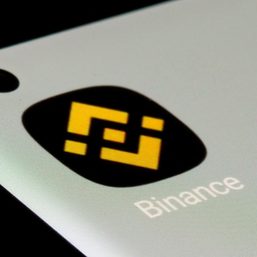
![[Finterest] What is cryptocurrency, and what’s with the hype?](https://www.rappler.com/tachyon/2023/12/crypto-money-laundering-reuters-scaled.jpg?resize=257%2C257&crop_strategy=attention)

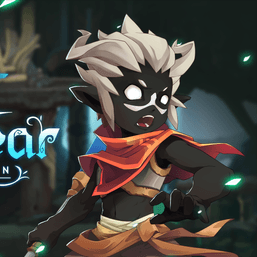


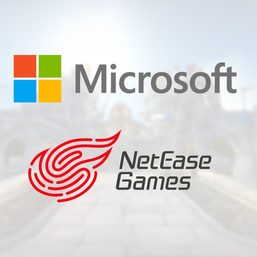

There are no comments yet. Add your comment to start the conversation.